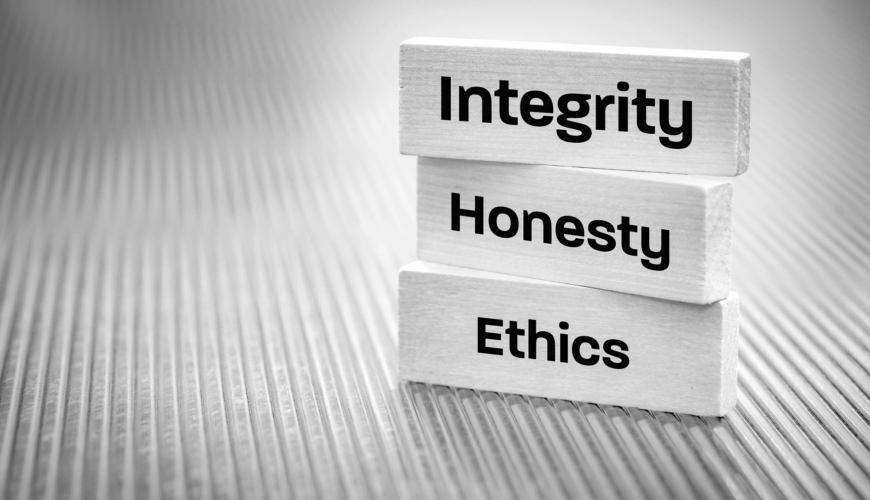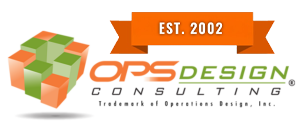Ethical surveillance in the supply chain refers to the proactive monitoring and auditing of supply chain activities to ensure compliance with ethical standards, human rights, and environmental regulations. This practice is not merely a corporate responsibility but has become a legal imperative in many jurisdictions, particularly within the European Union (EU). As businesses expand their operations globally, the need for robust ethical surveillance mechanisms has never been more critical.
Defining Ethical Surveillance in the Supply Chain
Ethical surveillance encompasses a range of activities aimed at ensuring that business operations, especially within supply chains, adhere to established ethical norms and legal requirements. This includes monitoring for human rights abuses, environmental violations, and unethical labor practices. The goal is to identify and mitigate risks that could harm individuals, communities, or the environment.
Key components of ethical surveillance include:
-
Risk Assessment: Identifying potential ethical risks within the supply chain, such as child labor, forced labor, and environmental degradation.
-
Monitoring and Auditing: Regularly reviewing supplier practices through audits, inspections, and data analysis to ensure compliance with ethical standards.
-
Transparency and Reporting: Providing clear and accessible information about supply chain practices to stakeholders, including consumers, investors, and regulatory bodies.
-
Remediation and Corrective Actions: Taking steps to address identified issues, including working with suppliers to improve practices or severing ties with non-compliant entities.
In the European context, ethical surveillance is increasingly being formalized through legislation that mandates companies to uphold human rights and environmental standards throughout their supply chains.
The Importance of Ethical Surveillance in Europe
1. Legal Mandates and Regulatory Frameworks
Europe has been at the forefront of implementing laws that require companies to conduct ethical surveillance within their supply chains. Notable legislations include:
-
Corporate Sustainability Due Diligence Directive (CSDDD): Adopted in 2024, this EU directive mandates companies with over 1,000 employees or a global turnover exceeding €450 million to identify and address human rights and environmental risks in their supply chains. Non-compliance can result in significant financial penalties.
-
German Supply Chain Due Diligence Act (LkSG): Effective from 2023, this law requires companies in Germany to monitor human rights and environmental risks in their supply chains. Companies must establish risk management systems, define human rights policies, and implement preventive measures.
-
French Duty of Vigilance Law: Enacted in 2017, this law obligates large companies to establish vigilance plans to identify and prevent human rights violations and environmental harm in their operations and supply chains.
These regulations underscore the EU’s commitment to promoting ethical business practices and holding companies accountable for their supply chain activities.
2. Consumer Demand for Ethical Practices
European consumers are increasingly prioritizing ethical considerations in their purchasing decisions. There is a growing demand for products that are sourced responsibly, with transparency regarding labor conditions and environmental impact. Companies that fail to meet these expectations risk losing consumer trust and market share.
To address this, businesses are adopting ethical sourcing policies, obtaining certifications from recognized organizations, and leveraging technologies such as blockchain to enhance supply chain transparency.
3. Financial and Reputational Risks
Non-compliance with ethical standards can lead to significant financial and reputational damage. Fines, legal actions, and exclusion from public contracts are potential consequences of failing to adhere to ethical surveillance requirements. Moreover, companies implicated in human rights abuses or environmental violations may suffer long-term damage to their brand image and consumer loyalty.
4. Global Supply Chain Complexity
As supply chains become more global and complex, ensuring ethical practices becomes more challenging. Companies often rely on multiple tiers of suppliers across various regions, making it difficult to monitor and enforce ethical standards consistently. Ethical surveillance provides a framework for managing these complexities by establishing clear expectations and accountability mechanisms throughout the supply chain.
Challenges in Implementing Ethical Surveillance
Despite its importance, implementing effective ethical surveillance in supply chains presents several challenges:
-
Resource Constraints: Smaller companies may lack the resources to conduct comprehensive audits and implement robust monitoring systems.
-
Supply Chain Complexity: The multi-tiered nature of global supply chains can make it difficult to trace and verify ethical practices at every level.
-
Cultural and Legal Differences: Variations in cultural norms and legal standards across countries can complicate the establishment of uniform ethical guidelines.
-
Resistance to Change: Suppliers and business partners may resist adopting new ethical standards due to cost implications or differing priorities.
Addressing these challenges requires collaboration among governments, businesses, and civil society to develop practical solutions and support mechanisms.
The Role of Technology in Enhancing Ethical Surveillance
Technology plays a pivotal role in improving the effectiveness and efficiency of ethical surveillance in supply chains. Key technological tools include:
-
Blockchain: Provides a decentralized and immutable ledger for recording transactions, enhancing transparency and traceability in supply chains.
-
Data Analytics: Enables the analysis of large datasets to identify patterns and anomalies that may indicate ethical risks.
-
Artificial Intelligence (AI): Facilitates predictive modeling and risk assessment, allowing companies to proactively address potential issues.
-
Digital Product Passports: Under the Ecodesign for Sustainable Products Regulation, digital product passports will be mandatory for all goods sold in the EU by 2030.
Ethical Surveillance in the Supply Chain: The United States Perspective
While Europe has taken a regulatory lead in mandating ethical surveillance in supply chains, the United States is increasingly aligning with these global standards, albeit through a more fragmented and decentralized approach. Ethical surveillance in the U.S. supply chain landscape is influenced by a combination of federal regulations, state-level initiatives, investor pressures, and corporate commitments to environmental, social, and governance (ESG) principles.
1. Federal Regulations and Enforcement
In the United States, there is no single, comprehensive federal law that mandates ethical surveillance across all supply chains. Instead, the federal government enforces a patchwork of laws aimed at curbing specific abuses such as forced labor, human trafficking, and environmental degradation. Notable federal laws include:
-
The Tariff Act of 1930 (Section 307): This law prohibits the importation of goods made with forced labor, including prison labor and child labor. U.S. Customs and Border Protection (CBP) has increasingly used this law to detain goods suspected of being produced unethically. Companies must provide evidence that their supply chains are free from forced labor to clear such detentions.
-
Uyghur Forced Labor Prevention Act (UFLPA): Enacted in 2021, this law creates a presumption that goods made in whole or in part in the Xinjiang region of China are produced with forced labor and are therefore inadmissible. Importers must conduct rigorous due diligence and provide clear evidence of ethical sourcing to counter this presumption.
These laws highlight the federal government’s growing emphasis on supply chain accountability, especially in areas associated with human rights abuses.
2. State-Level Legislation
Several U.S. states have enacted their own laws targeting supply chain ethics. For example:
-
California Transparency in Supply Chains Act: This law requires large retailers and manufacturers doing business in California to disclose their efforts to eradicate slavery and human trafficking from their direct supply chains. It encourages companies to publicly report on their supply chain due diligence practices.
Though limited in scope compared to European regulations, such laws reflect a growing interest at the state level in promoting ethical supply chain practices and transparency.
3. Corporate ESG Commitments
In the absence of sweeping federal mandates, many U.S.-based companies have taken voluntary steps to implement ethical surveillance in their supply chains as part of broader ESG strategies. These companies recognize that ethical sourcing is not only a moral imperative but also a competitive advantage. Key motivations include:
-
Investor Expectations: Institutional investors increasingly evaluate companies based on their ESG performance. Firms that demonstrate robust supply chain ethics are more likely to attract long-term investment.
-
Consumer Preferences: Similar to Europe, American consumers are becoming more conscious of the social and environmental impacts of the products they buy. Transparency in sourcing practices can enhance brand loyalty and trust.
-
Risk Management: Ethical surveillance helps companies avoid supply chain disruptions, legal penalties, and reputational damage associated with unethical practices.
4. Technological and Industry-Led Solutions
Technology and industry-led coalitions are also driving ethical surveillance efforts in the U.S. supply chain landscape. Businesses are investing in tools such as:
-
Supply Chain Mapping Software: Allows companies to trace raw materials and intermediate products through multiple tiers of the supply chain.
-
Real-Time Monitoring Tools: Use sensors, AI, and satellite imaging to monitor labor conditions and environmental compliance at supplier sites.
-
Collaborative Platforms: Industry consortia and non-governmental organizations provide shared resources, benchmarks, and best practices to standardize ethical surveillance across sectors.
These tools are critical in compensating for regulatory gaps and enhancing visibility into complex global supply chains.
5. Challenges Unique to the U.S. Context
Despite progress, ethical surveillance in U.S. supply chains faces unique challenges:
-
Decentralized Policy Environment: The lack of a unified national framework means companies must navigate a complex landscape of federal, state, and international regulations.
-
Enforcement Variability: Federal enforcement, particularly under laws like the Tariff Act, can be inconsistent, leading to uncertainty for businesses.
-
Corporate Resistance: Some businesses, especially small and mid-sized enterprises, may view ethical surveillance as a costly regulatory burden rather than a strategic imperative.
-
Political Polarization: Debates around ESG and corporate responsibility have become politicized in the U.S., leading to conflicting pressures on businesses from various stakeholders.
Global Harmonization and Future Outlook
The United States, while currently more fragmented in its approach compared to the European Union, is nonetheless trending toward stronger ethical expectations in supply chain management. With increasing pressure from consumers, investors, and international trading partners, it is likely that federal and state policymakers will continue to expand regulations and incentives supporting ethical surveillance.
Moreover, there is growing discussion about the harmonization of ethical standards across borders. As global supply chains span multiple jurisdictions, multinational companies—many headquartered in the U.S.—are pushing for consistent rules and clearer guidance to reduce compliance costs and avoid reputational risks.
Ultimately, the convergence of market forces, stakeholder demands, and emerging legal frameworks is shaping a future where ethical surveillance is not just a European standard but a global expectation—and the United States is an active, if somewhat complex, part of this evolution.


